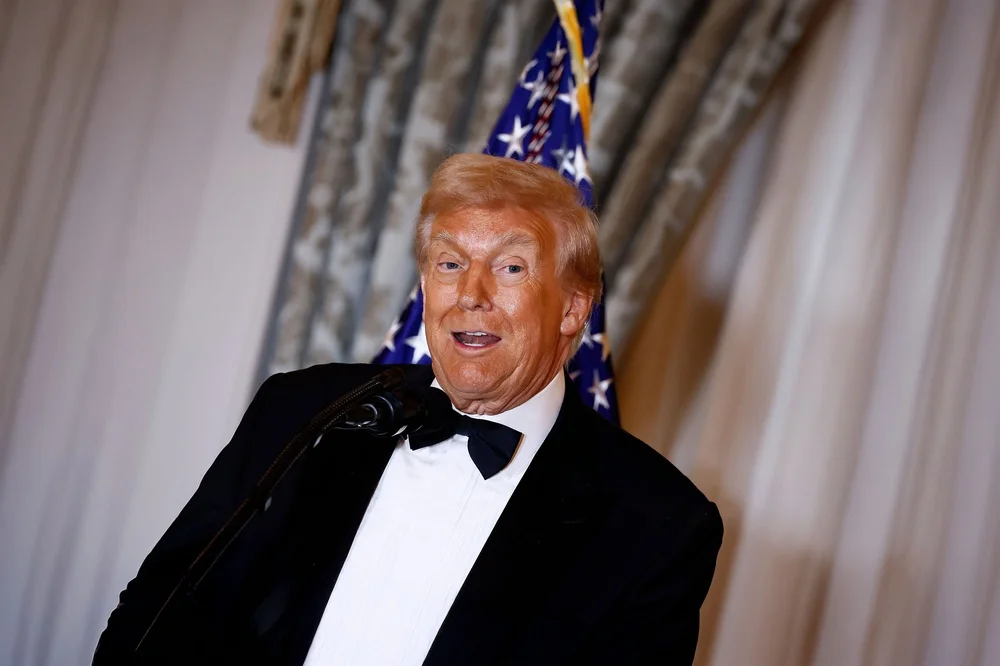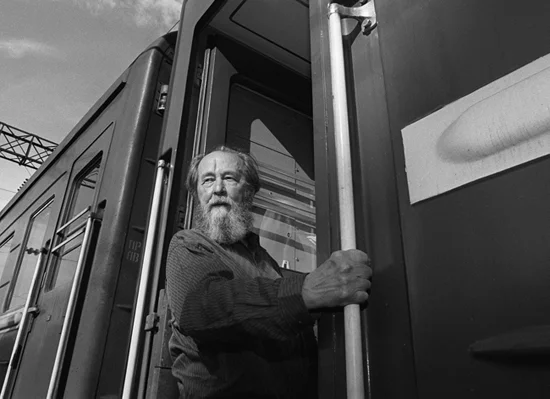
Building a Politics of Deliberation in the Tarheel State
A program in North Carolina can show America’s leaders how to model a better form of politics.
The former speaker of the Minnesota House was murdered in her home alongside her husband. Another Minnesota lawmaker and spouse were shot. Two Israeli embassy staffers were murdered in Washington. A conservative leader was murdered in Utah. An insurance executive was murdered in New York. Two assassination attempts against a once-and-future president. Shots were fired into a Centers for Disease Control office building, resulting in the death of a police officer. Other attempts were made against the governor of Pennsylvania, a congressional leader’s spouse, and several members of the U.S. House of Representatives.
We omit names from this (partial) list of politically motivated acts of violence not to dishonor the victims but to emphasize the breadth and depth of the challenge we face. It isn’t confined to a single community, state, or political faction. America’s political discourse has grown coarse, unproductive, and often toxic. And this discourse is spawning violence.
Our political leaders helped create this toxicity. They are also in the best position, through language and example, to tamp it down.
Violence is the most alarming consequence of our toxic political culture — but it is hardly the only important one. Americans have lost confidence in their country’s political and civic institutions. According to a Pew Research Center compilation, only 22 percent of respondents in 2024 said they trusted the government to do what is right “just about always” or “most of the time.” That’s down from 77 percent who trusted the government in 1964. Also last year, Gallup found that 60 percent of Americans had “very little” or “no” confidence in Congress, with about half saying the same about the presidency and the press. As recently as 2004, public level of distrust was far lower: 21 percent for Congress, 22 percent for the presidency, 24 percent for newspapers, and 29 percent for TV news.
Our republic isn’t fragile. It’s weathered many storms. Independent thinking and divergent views are inevitable in a pluralistic society and do not threaten democracy. But what we’re witnessing today isn’t healthy skepticism. It’s pervasive cynicism.
The underlying problem isn’t disagreement. Americans have differed on political questions since our founding. Indeed, our system of government was expressly designed to transform factional disputes and philosophical differences into public dialogue and negotiation — punctuated by robust but peaceful competition for political power.
The high price of destructive dialogue and the value of constructive engagement are among the few matters about which the coauthors of this article agree. Leslie is a former Democratic state senator and civil-rights attorney who chaired a progressive think tank and ran a left-leaning grantmaker. John is a longtime columnist and GOP appointee to state boards and commissions who chaired a conservative think tank and runs a right-leaning grantmaker. As you might expect, we hold different views on most policy issues. Yet for more than a decade, we’ve been working together to build trust among North Carolina's policy leaders. Our reading of history and social science suggests that a high degree of trust is required for democracy to function well, especially in places such as our home state, North Carolina, where ideological divisions are wide and partisan competition fierce.
Will, Skills, and Relationships
That’s why we created the North Carolina Leadership Forum to bring together leaders from across the state. Based at Duke University, the program convenes three dozen leaders at a time from across our state for a series of in-depth, off-the-record conversations. Each cohort includes leaders with different backgrounds and ideologies. So far, we’ve helped hundreds of state lawmakers and executive-branch officials, county and municipal officials, heads of major businesses and nonprofits, and other leaders develop the will, skills, and relationships they need to engage constructively across political and ideological divides.
Take a closer look at the phrase “constructive engagement across divides.” We chose it carefully. For starters, to engage across a divide is to recognize that it isn’t going anywhere. Our goal isn’t consensus on all or most issues. That’s unrealistic, and heavy-handed attempts to produce or coerce it can do more harm than good. We aim to help leaders understand and accept their differences, which often arise from varying underlying values, experiences, or perspectives.
Second, inverting our chosen term is a handy way to define the problems we face. One opposite of constructive engagement is destructive engagement — the venomous attacks, scorched-earth tactics, and shouting matches that all too often dominate modern politics. Another opposite is disengagement. Its consequences are almost as harmful. They consist of discoveries never made, perspectives never understood, lessons never learned, solutions never found, and problems left to fester.
The two of us began discussing these problems back in 2014. We soon concluded they were too big, their causes too numerous and poorly understood, for the two of us to “solve” by ourselves. Some potential remedies, however promising, were beyond the power of our respective organizations and networks to apply. Some causes are flatly impossible for us to eliminate. For example, new communications technologies — first cable news, then websites, and especially social media — enabled voters to create comfortable news “cocoons” where preexisting views are reinforced and contrasting views largely excluded. What can anyone realistically hope to do about this? Uninvent the technologies in question? Convince governments to ban them, or convince hundreds of millions of people to abandon them voluntarily?
Instead of trying to solve the problems like information bubbles, we decided to look for points of leverage, for places where the application of the influence we possess could make a meaningful difference. We found such a leverage point among the policy leaders of North Carolina, either those we knew or those who knew of us. We decided to give our highly polarized leaders the tools they need to engage effectively with one another.
Why We Focus on Leaders
There is extensive literature across disciplines like political science, economics, social psychology, and communication theory that documents the indispensable role leadership plays in human action. Leaders operate within social structures and respond to incentives, of course, but they also create new organizations, staff and administer preexisting ones, set agendas, attract and cultivate followers, shape social norms and fashions, and build networks of influence among other leaders to advance or obstruct social change. In politics, policymakers and opinion leaders — those who serve in elective or appointive office, who used to be officeholders and retain informal authority, who aspire to be officeholders, and who fund, lobby, cover, work for, or organize against officeholders — exercise a degree of influence over government and how citizens perceive government disproportionate to their relatively small numbers.
The presence of influential leaders need not be a recipe for oligarchy or tyranny. In free societies, policymakers are directly or indirectly accountable to voters, opinion leaders are responsible to their own audiences and constituencies, and all are subject to competitive pressures, procedural constraints, and the rule of law. Most people spend most of their time thinking about matters other than politics, exhibiting what economist Anthony Downs famously termed “rational ignorance.” For political information, and the daily functioning of of government itself, they rely on others for whom politics or public policy is a profession or passion. That is, they rely on policymakers and opinion leaders.
Gabriel Lenz, a political scientist at Berkeley, argued in his book Follow the Leader that most voters aren’t political junkies. They don’t hold strong, unwavering views on most policy issues. To a large extent, Lenz wrote, “instead of politicians following voters on policy, voters appear to follow politicians.”
Mountains of opinion surveys may seem to suggest otherwise, but pollsters often pose questions on issues about which respondents know little, producing fragile results that reflect question wording or endorsement effects more than genuine, deeply felt views. Lenz and other like-minded scholars aren’t suggesting political elites can do whatever they want, enjoying an unchecked power to bamboozle constituents. Their argument is simply that elections are more about performance than policy specifics. Democracy succeeds by “selecting competent leaders over incompetent ones,” Lenz argued, not by determining a discrete set of voter-approved policies and then selecting candidates who espouse the greatest number of them.
Just as voters often adopt positions on specific issues because leaders they like endorse them (or because leaders they dislike oppose them), voters also appear to take cues from their leaders on political behavior. A 2022 study of Dutch election campaigns found, for example, that when exposed to opinion leaders using extreme language on social media, their followers “apply more uncivil language, become more affectively polarized, and talk more about politics.” A 2018 study of American voters found that as Democratic and Republican politicians became more polarized on issues and votes, affective polarization among their followers increased, and their dislike of the opposing party increased more than their like of their own party.
While there are many other research findings like these, there is also evidence that politicians and opinion leaders respond to the external incentives that reward over-the-top language and behavior. They can induce followers to spend more time on their media channels, make donations, and turn out to vote. We don’t deny that the causal arrows point in both directions. In fact, we considered that when designing the North Carolina Leadership Forum, concluding it was more likely we could shape the attitudes and behaviors of a critical mass of policy leaders than of a critical mass of citizens. We could bring leaders into a room, have them engage with each other in a way that would increase understanding and trust, and maximize the likelihood they’d use what they’d learned after leaving.
We thought about the incentive structure in which leaders are embedded. What might they expect to gain from participating in the program? How might we make our Leadership Forum the “in” thing to do? Indeed, how could we construct and promote the program so that leaders would ask us to participate, not wanting to feel “left out” of something valuable and important?
Over time, we figured out the right mix of strategies. They included carefully worded invitations and explanations, as well as enthusiastic endorsements from prominent Democrats and Republicans. We learned to be effective facilitators and recruited others with whom each participant could identify. We provided opportunities for candid and in-depth conversations about important issues, the values underlying them, and the upsides and downsides of potential actions to address them.
Why We Don’t Focus on Washington
Although targeting leaders within North Carolina might seem like an obvious choice for us to make, given that we’re both natives who’ve spent most of our respective careers in the state, there were good arguments for us to adopt a broader scope. After all, when people worry about political violence, debilitating polarization, and threats to public confidence and democratic legitimacy, they most often point to the behavior of federal politicians, the role of national organizations or media outlets, and action (or lack of action) in Washington. We could, in fact, have designed our program for members of Congress, prospective candidates for Congress, or at least for members of the North Carolina delegation, all of whom we have met and some of whom we know well.
We decided not to do that in part because the program's nature didn’t fit well with a national scope. Dosage mattered to us. We knew that to build nuanced understanding and trust relationships, we would need to take a deep dive. We had several full-day or two-day sessions in mind, to be held over several months. That would be hard enough to pull off with leaders representing North Carolina communities from the mountains to the coast. Attracting and retaining schedule-challenged participants from sea to shining sea seemed like a dubious prospect.
Moreover, while toxic discourse is evident across all locations and levels of government, its severity in the nation’s capital is a good reason not to start there! We didn’t want to bite off more than we could chew. North Carolina has plenty of destructive polarization within our own borders. We deemed it wiser to begin at a smaller scale, build momentum, and then expand later, maybe by replicating the program in other states. We identified another way to influence national polarization: today’s mayors, legislators, and state officials often become tomorrow’s U.S. senators and representatives. Indeed, two leaders who participated in our program as state senators went on to serve in Congress, and one has been the director of a major federal agency.
Keeping it closer to home also meant that we, as the founders, and the colleagues we recruited to the program’s steering committee, would have preexisting relationships with our invitees, increasing the likelihood they’d agree to participate and trust us enough to speak candidly during our meetings.
Another argument for staying close to home was that North Carolina is a populous and influential state. It’s also a closely divided battleground where elections are highly competitive and local disputes often escalate into national controversies. Remember all the hoopla in 2016 over the so-called bathroom bill? Ever noticed how many U.S. Supreme Court decisions on gerrymandering involve cases from the Tar Heel State? We figured that if we could make headway in North Carolina, fostering constructive engagement across its yawning political divide, that would constitute a success worth emulating. It wasn’t quite “if we can do it here, we can do it anywhere” — but it was pretty darn close.
A Promising Start
We convened our first North Carolina Leadership Forum in 2015. Since then, we’ve held nine statewide and five regional forums, engaging nearly 500 leaders. We focus each cohort on a controversial subject — such as income inequality, energy policy, or health care reform — but we explain right off the bat that the leaders aren’t there to “fix” the issue. It’s not a blue-ribbon commission (not that there’s anything wrong with those). At the same time, you can’t expect busy people to spend months having long conversations about how more people should come together to have lengthy talks about coming together!
Rather, as our participants delve more deeply into the chosen subject — identifying concerns and values related to it, brainstorming potential actions to address those concerns, evaluating them in light of their values, and exploring each action’s upsides and downsides — the leaders build intellectual muscle and social capital. Almost all our participants leave the program having formed new relationships with leaders who hold views different from theirs. They become modelers of civil dialogue and ambassadors for constructive engagement. Through this process, they not only build relationships that will enable them to engage with each other more effectively in the future but also gain the skills to address complex problems likely to garner broad support.
While we haven’t yet reached the critical mass required to transform North Carolina’s political discourse, our early results are promising. Most participants rate their experience highly and say it made them more likely to seek out different sources of information, foster broader dialogue, and work across party lines. More than three-quarters of leaders participating in a forum on elections, for example, told us they gained new knowledge about how the state conducted its elections and “better understood the values, opinions, or priorities” of those who disagreed with them on voter ID, ballot counting, redistricting, or other election issues.
One state lawmaker said the program “sets an extremely high standard” for bringing together “lawmakers and thought leaders to discuss and create potential solutions to hard-hitting issues.” She subsequently modeled a legislative commission after it. Another lawmaker called a forum on criminal justice “an invaluable experience” that “broadened my perspective on how to improve the safety of our communities.”
Almost every participant leaves the program with one or more new relationships with leaders whose views differ from their own.
These new relationships of trust and skills for engaging on difficult issues not only increase the chances that North Carolina will have sound public policy but also reduce the likelihood that citizens watching these leaders will seethe with anger and resort to political violence.
Our initial success reflects the essential contributions made by our talented staff, generous supporters, and steering committee of North Carolina leaders, most of whom are former or current public officials, who select each class of participants and facilitate most of the sessions themselves. It also reflects the very public collaboration of the two of us, a progressive and a conservative, who share a revulsion at what American politics has become and a commitment to doing something about it.
Leslie Winner, an attorney, formerly served as a state senator, general counsel for the University of North Carolina, and executive director of the Z. Smith Reynolds Foundation.
John Hood, a journalist, is a syndicated columnist, former president of the John Locke Foundation, and current president of the John William Pope Foundation.
They are co-founders of the North Carolina Leadership Forum and co-chair its Steering Committee. A more detailed explanation of the hows and whys of the NCLF model can be found in the NCLF Playbook on How to Build Constructive Engagement Among State and Local Policy Leaders.
Politics
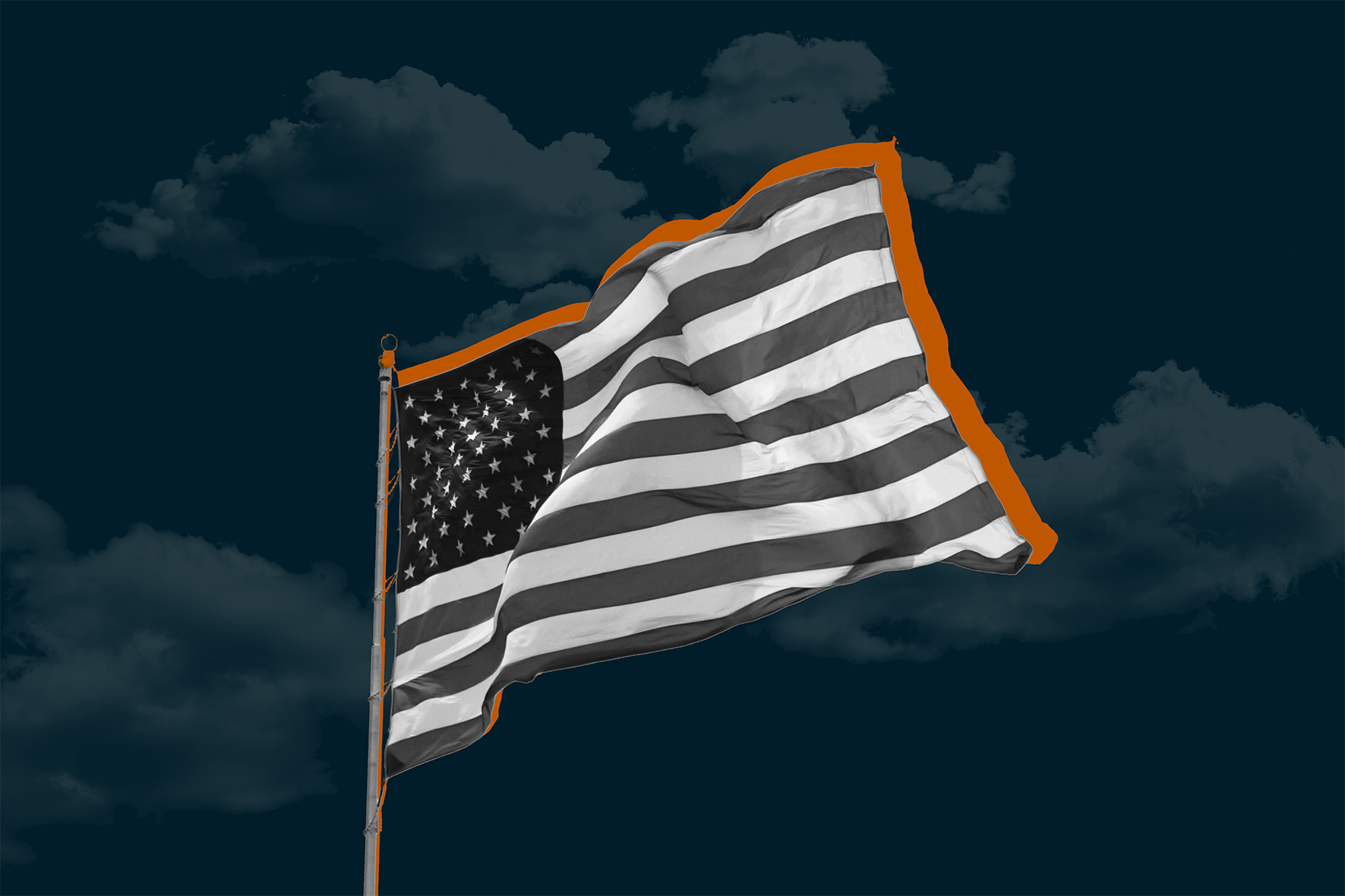
National Civitas Institute Poll: Americans are Anxious and Frustrated, Creating a Challenging Environment for Leaders
The poll reveals a deeply pessimistic American electorate, with a majority convinced the nation is on the wrong track.
.webp)
Liberal Democracy Reexamined: Leo Strauss on Alexis de Tocqueville
This article explores Leo Strauss’s thoughts on Alexis de Tocqueville in his 1954 “Natural Right” course transcript.
%20(1).avif)
Long Distance Migration as a Two-Step Sorting Process: The Resettlement of Californians in Texas
Here we press the question of whether the well-documented stream of migrants relocating from California to Texas has been sufficient to alter the political complexion of the destination state.
%20(3).avif)
Who's That Knocking? A Study of the Strategic Choices Facing Large-Scale Grassroots Canvassing Efforts
Although there is a consensus that personalized forms of campaign outreach are more likely to be effective at either mobilizing or even persuading voters, there remains uncertainty about how campaigns should implement get-out-the-vote (GOTV) programs, especially at a truly expansive scale.

There's a Perception Gap With the U.S. Economy
As we approach another election cycle, it’s worth asking: what’s real, what’s political theater, and what does it all mean if Democrats regain control of the House?

International Law Is Holding Democracies Back
The United States should use this moment to argue for a different approach to the rules of war.
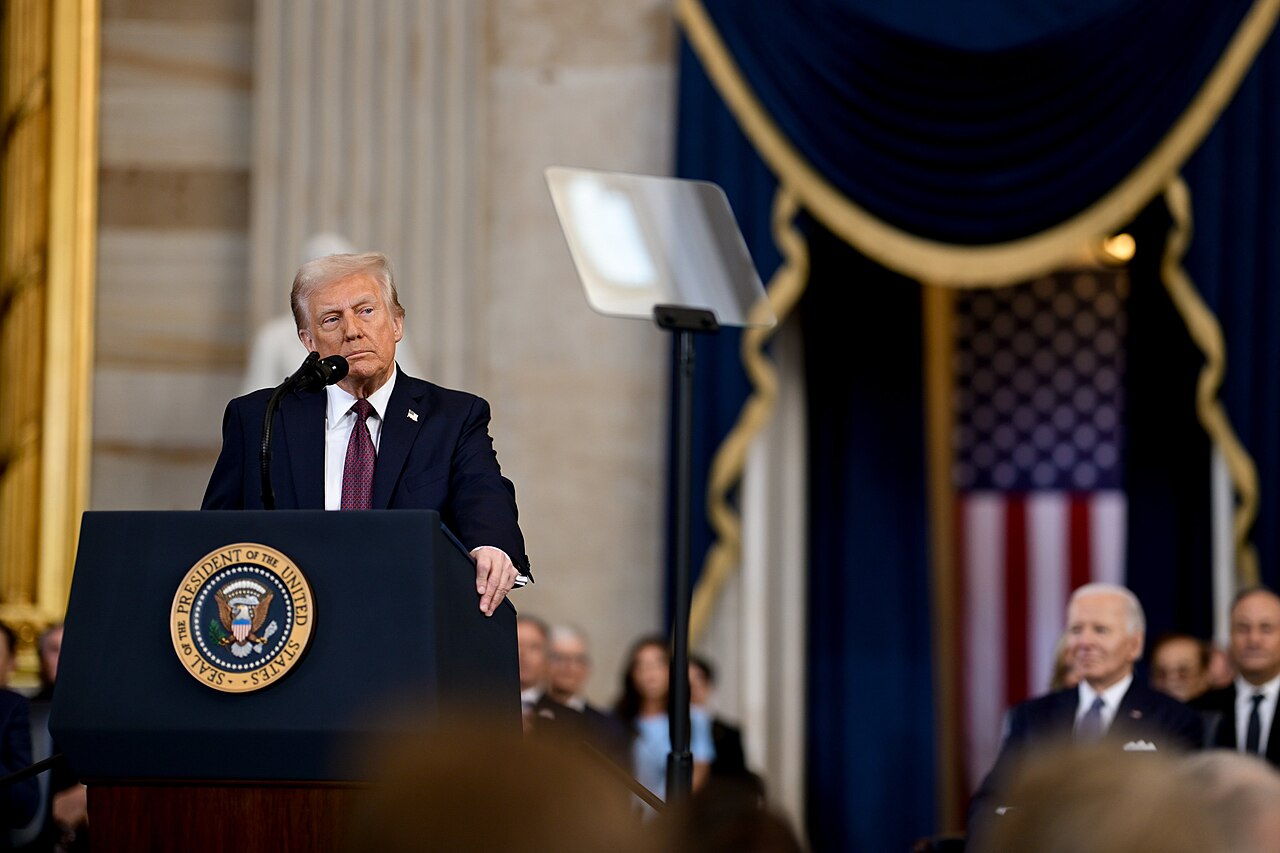
Trump purged America’s Leftist toxins. Now hubris will be his downfall
From ending DEI madness and net zero to securing the border, he’ll leave the US stronger. But his excesses are inciting a Left-wing backlash
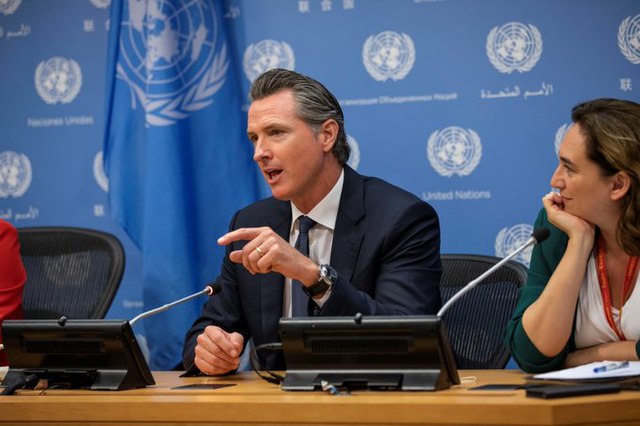
California’s wealth tax tests the limits of progressive politics
Until the country finds a way to convince the average American that extreme wealth does not come at their expense, both the oligarchs and the heavily Democratic professional classes risk experiencing serious tax raids unseen for decades.

American Immortals
Unlike other abolitionists, though, Douglass never lost his faith in the American Founding. Indeed, he believed that the fundamental premises of our republic were the very principles that could save her from this moral crisis.
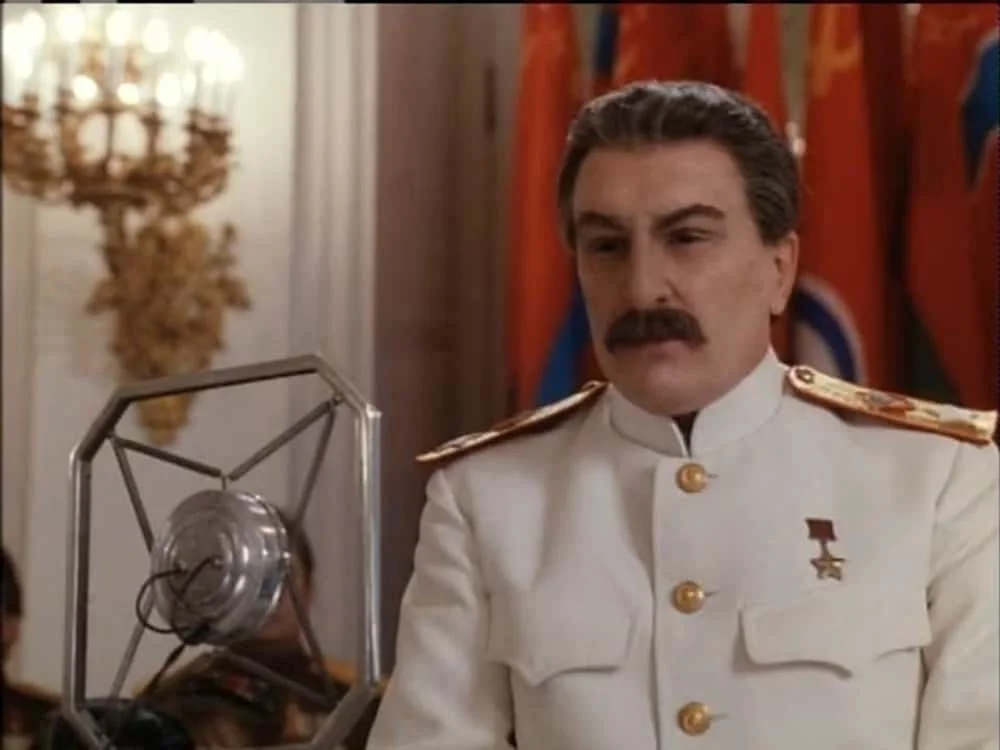
When Duvall Played Stalin
It’s strange to compliment an actor for impersonating a tyrant, but it is an act of courage.








